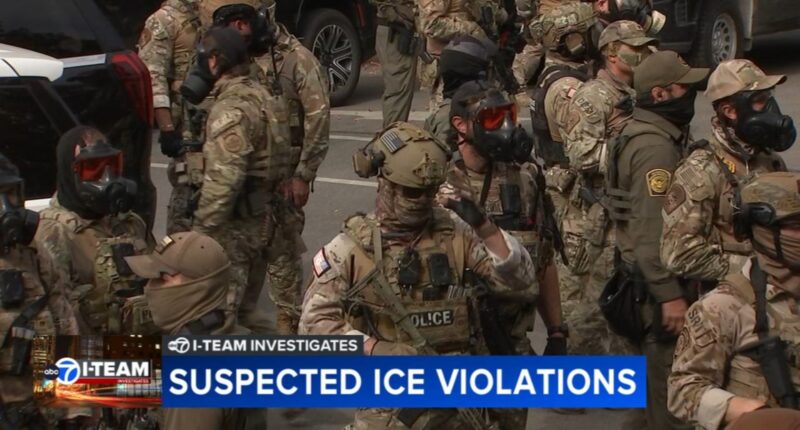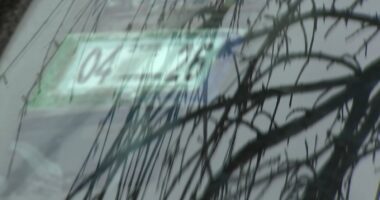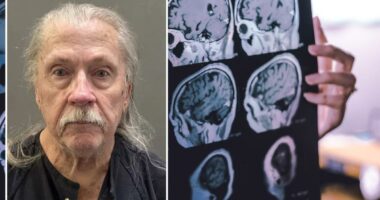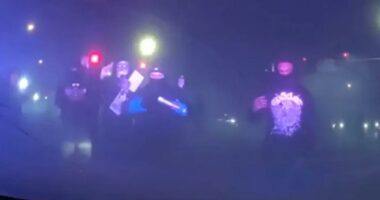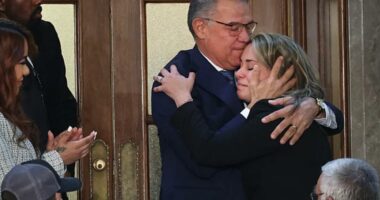Share this @internewscast.com
The interim director of the Chicago U.S. Immigration and Customs Enforcement (ICE) Field Office is set to return to Washington this Friday, following his recent involvement in a federal inquiry into the use of force by federal agents.
This development was revealed in a court document concerning a hearing scheduled for Monday, which required the appearance of Russell Hott.
ABC7 Chicago is now streaming 24/7. Click here to watch
During a court session on Thursday, attended by the ABC7 Chicago I-Team, a judge expressed serious concerns about the actions of federal agents during a recent immigration enforcement operation.
Hott had been summoned to testify regarding several incidents where agents were accused of defying a court order by using tear gas on peaceful demonstrators without prior warning.
However, the Department of Justice is now seeking testimony from Customs and Border Protection Deputy Incident Commander Kyle Harvick on these possible infractions.
The Department of Homeland Security issued a statement on Friday clarifying that “Russell Hott is the permanent Field Office Director (FOD) for Washington, DC, not Chicago. His stint in Chicago was temporary, and he is returning to his permanent role in DC. Samuel Olson, previously the Chicago and now the St. Paul FOD, will take over as interim FOD in Chicago.”
On Thursday, U.S. District Judge Sara Ellis modified an already existing temporary restraining order, or TRO, in place to require all agents working under “Operation Midway Blitz” who have already been issued body cameras to wear them and keep them on during “law enforcement activities” in Chicago.
In addition to Monday’s hearing, Judge Ellis also set a Nov. 5 date for a preliminary injunction hearing to decide whether the TRO will remain in effect for a longer period.
Judge Ellis told the parties the “ideological motivation” behind the Administration’s so-called Operation Midway Blitz is, so far, “irrelevant” to this case. Rather, the judge is focused on how agents are enforcing the law, and whether it’s violating people’s constitutional rights.
“What I’m looking at is how are these agents enforcing the law?” Ellis said. “Are they doing so in a manner that is violating other people’s constitutional rights? If that is happening, that needs to stop.”
The video in the player above is from an earlier report.
